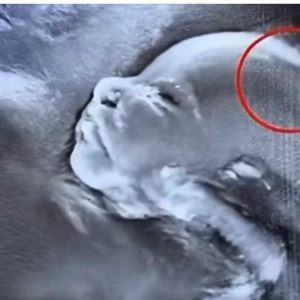A Heartfelt Reflection: The Significance of Coins Left on Military Graves
The act of leaving coins on a military grave is a long-standing tradition with deep cultural and historical roots. Recently, a grieving widow shared her emotional experience upon visiting her late husband’s gravesite, noticing coins placed on his gravestone. This poignant detail sparked curiosity and concern, prompting an exploration of what such a gesture truly signifies.
Understanding the Tradition
The custom of leaving coins at a fallen service member’s gravestone originated during wartime, particularly in the United States, and has become a meaningful gesture among military families, veterans, and friends. Each coin carries a specific meaning, serving as a silent communication across generations, conveying messages of respect, remembrance, and acknowledgment.
Common Interpretations
– **One Coin:** Typically, a single coin left on a gravestone indicates a visit by someone connected to the deceased. It may represent a token of respect or a personal tribute by a visitor, whether a family member, friend, or fellow service member.
– **Two Coins:** When two coins are found together, it often signifies that two individuals who knew the fallen served together or are paying their respects simultaneously or sequentially. It can also symbolize the connection between the visitor and the service member, reflecting camaraderie or shared history.
– **Three Coins:** A set of three coins usually indicates that the deceased was visited by someone who served in the same military unit or was a close family member. Additionally, a classic interpretation is that it denotes a ‘visit’ from a fellow service member, paying homage on behalf of those who served alongside.
Cultural and Historical Context
The tradition draws from military customs and folklore, especially among American service members, where specific coins—such as pennies, nickels, dimes—are associated with particular messages. For example, a penny (a one-cent coin) often represents a simple acknowledgment, while a nickel (five cents) might indicate that the visitor served with the deceased.
In some cases, coins from different denominations carry additional meanings; for instance, a dime might symbolize a more significant gesture or remembrance, though these nuances vary by community and personal tradition.
Origin and Evolution
The custom is believed to have originated during World War II and the Korean War, where soldiers would leave coins on graves as a special sign of remembrance when visiting their fallen comrades. Over time, it evolved into a broader cultural practice, adopted by military families and communities as a poignant way to honor those who served.
Why Do People Leave Coins on Graves?
People leave coins for various reasons, primarily as expressions of respect, remembrance, and gratitude. The act serves as a personal tribute, a tangible sign that the individual’s sacrifice has not been forgotten.
For some, placing coins on a grave is a way to silently communicate with the departed or to honor their memory. It can also serve as a form of connection between the living and the deceased, maintaining a spiritual or emotional link.
The Significance of the Gesture
While the actual meaning behind the coins can vary depending on personal or cultural interpretations, the underlying intent is universally rooted in honoring service and sacrifice. It is a gesture that transcends words, embodying gratitude and remembrance in a discreet, respectful manner.
A Personal Reflection
For a widow who recently lost her husband—an active-duty military member—the sight of coins on his gravestone might evoke complex feelings. Amid grief, such symbols can serve as a source of comfort, reminding loved ones that others also remember and honor their fallen hero.
However, sudden discoveries like this can also be unsettling, especially in the face of profound loss and mourning. It underscores the importance of understanding these traditions and their significance, fostering a sense of connection rather than fear.
Conclusion
The tradition of leaving coins on military graves is a touching, respectful gesture rooted in history and camaraderie. It symbolizes remembrance, respect, and the enduring bonds formed through service. For mourners and visitors alike, understanding this custom can provide comfort and a deeper appreciation of the solemn rituals honoring those who served.
If you encounter coins on a loved one’s grave, consider it a sign that their sacrifice has touched others’s hearts. It’s a silent message of gratitude, remembrance, and enduring respect—a tradition that helps keep their memory alive across generations.
STAY TUNED !





